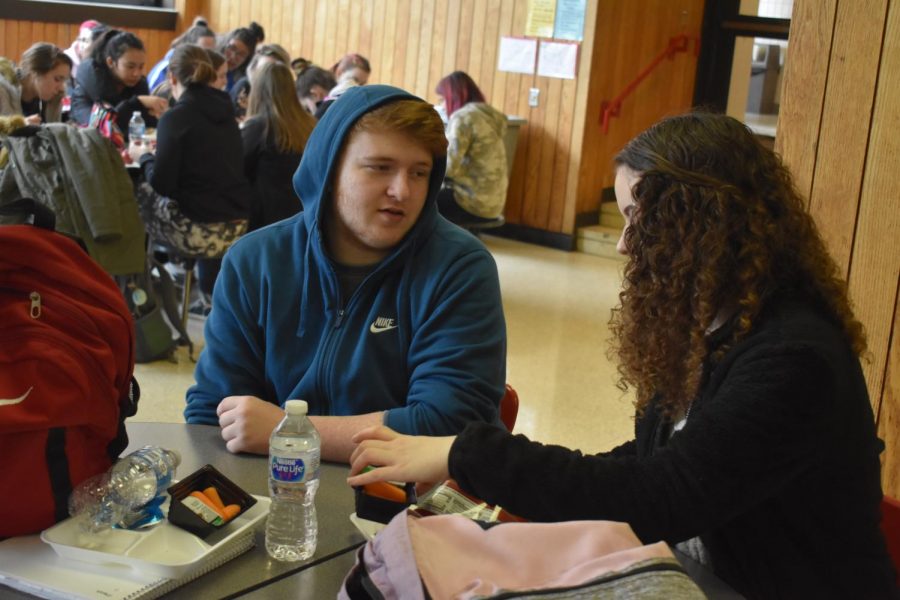Gender, friendship limitation
Society judges opposite gender friendships without reason
High school is all about friendships. A student doesn’t always surround themselves with friends because they have things in common. Sometimes they pick the friends who challenge them for the better. This could be a co-worker, fellow student or a family friend. Friendships do not have a gender or race assigned to them, just like any relationship. It doesn’t matter that people are different. That friendship connects the two. So why does society look down on opposite gender friendships?
Some people assume that if a female and male are friends, that means that they are dating. This, in turn, can bring about slut-shaming towards the female, especially if she has multiple friendships or is in a relationship. Slut-shaming is the criticism of people who violate society’s expectations of behavior and appearance related to their sexuality. Although most people believe that slut-shaming only victimizes females, males can have it just as bad. So where is the problem?
Everyone knows the 2004 film Mean Girls. The “Plastics” or mean girls, create a burn book, basically making fun of all of the females in their grade. After the book gets out, the girls riot and are eventually gathered in the gymnasium. Ms. Norbury, the high school math teacher, addresses the teenage girls about what she feels is “girl-on-girl crime”: Her message, along with most of the film’s, is transparent: females can be their own worst enemy.
In high school, most slut-shaming comes from females, creating the previously mentioned girl-on-girl crime. According to the guardian.com, author Jessica Valenti said, “What makes a slut? The only rule, it seems, is being female.”
A UK-based study showed that between Dec. 26, 2013 and Feb. 9, 2014, 100,000 text messages used the word “rape”, while 48,000 used “whore” and 85,000 used “slut.” The same researcher found that twitter accounts with male names used one of those words 116,530 times, while female-named accounts did so 94,546 times.
Slut-shaming can often be blamed on school dress code. Many stories have been told about female students having to cover up their shoulders or wear longer skirts due to their wardrobe not following school rules. Most people don’t think of this type of shaming occurs through friendships, but just because most of these stories go untold, that doesn’t mean they don’t happen.
According to stopbullying.gov, about 49% of children in grades 4–12 reported being bullied by other students at least once in the past month. The Los Angeles Times reports that a study concluded slut-shaming is one of the most common forms of sexual harassment that middle and high school students face.
“I think it is important to have friends of the opposite gender because it gives you a different perspective and advice on situations that you are uncertain of. It is also a lot easier to relate on issues that aren’t always so simple,” junior Brandon Majors said.
Even if a person disagrees with other views, the correct response is kindness. There is no perfect response or way to approach any situation, but imagine if we stopped judging everyone because of what makes them happy. Nobody wants to be looked down on for what they believe is meaningful to them. Choosing a friendship with the opposite gender is not something that a person should be ashamed of.



